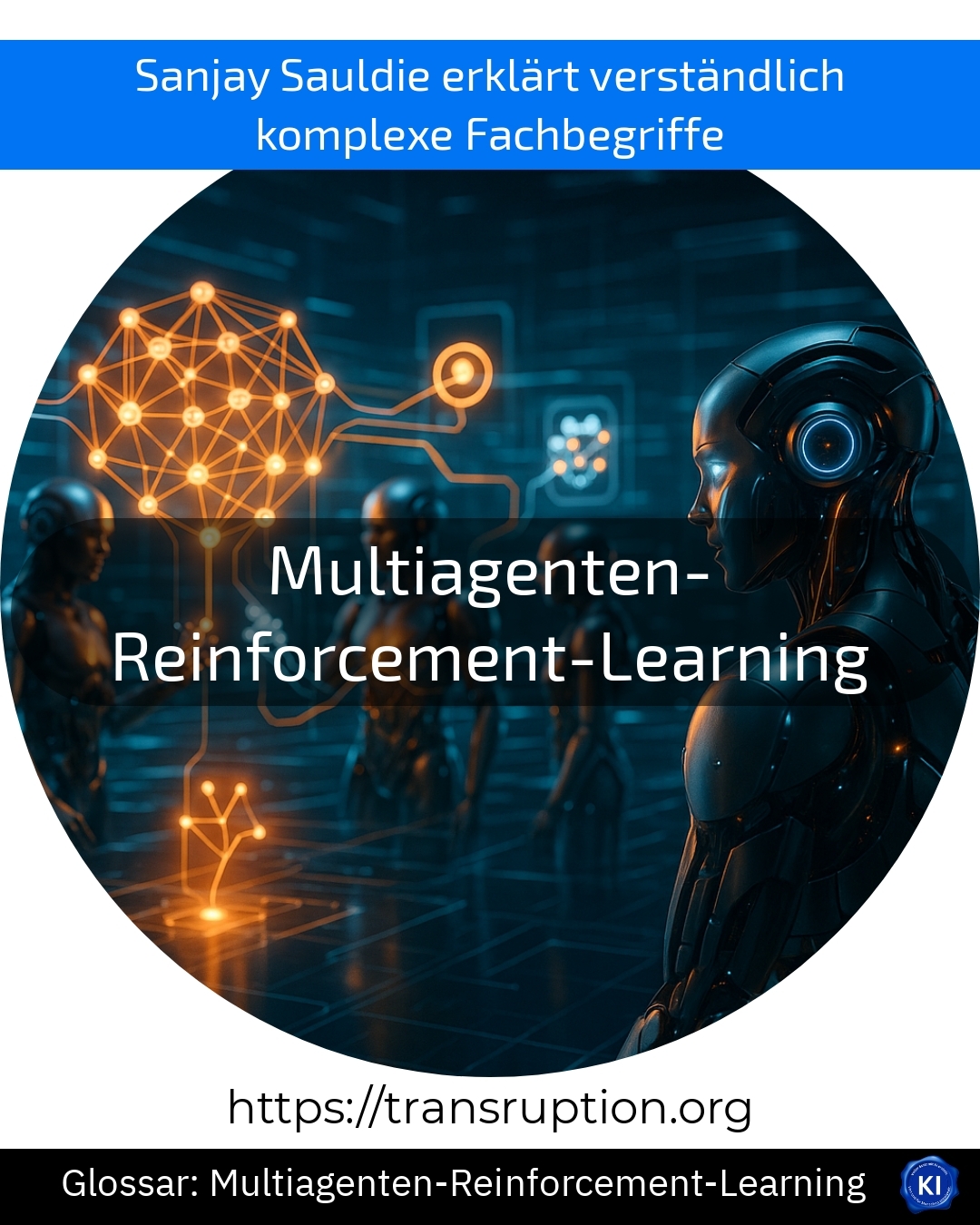The term multi-agent reinforcement learning belongs to the category of artificial intelligence and has an important place in automation as well as Industry and Factory 4.0.
Multi-agent reinforcement learning describes a method in which several "agents" - these can be robots or software programmes, for example - learn how to solve tasks better through cooperation or competition. Each of these agents gathers its own experience, makes decisions based on rewards (e.g. for correct behaviour) and thus develops its own strategies. The aim is for all agents to constantly improve their behaviour by working together.
An illustrative example is the control of moving robots in a warehouse. Instead of training one robot alone, everyone learns at the same time - paying attention not only to their own goals, but also to the actions of the others. This gradually results in optimised, coordinated behaviour: The robots efficiently avoid each other, share tasks and increase productivity together.
In a nutshell: Multi-agent reinforcement learning helps to create systems in which many "players" cooperate independently and intelligently with each other, thereby optimising complex processes.















